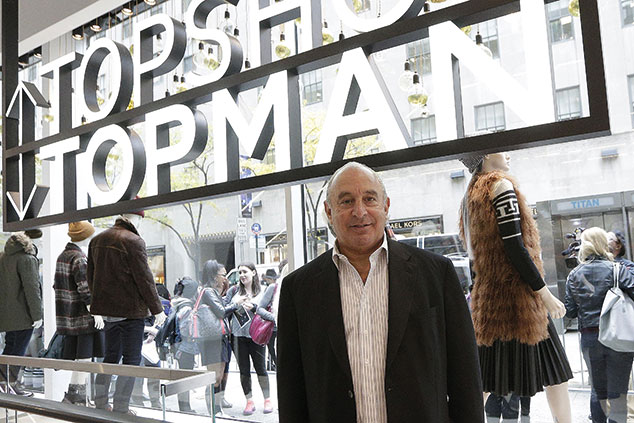
Philip Green is “not a very nice person”, Richard Shepherd-Cross, manager of the real estate investment trust Custodian Reit (LSE: CREI) told Citywire earlier this month. Custodian was one of the landlords that voted against his retail group Arcadia’s ultimately successful company voluntary arrangement (CVA) proposal a few weeks ago. These arrangements give indebted companies time to restructure debts, and often involve forced rent reductions, which is bad news for their landlords.
More and more retailers have had to resort to CVAs in recent years, prompting accusations that they’re using the mechanism merely to duck out of rental responsibilities. Indeed, “CVAs used to be the last roll of the dice, a compromise with creditors to save the business,” says Shepherd-Cross. “There was shame in it. Now… people think it’s clever financial planning.”
Custodian invests in commercial properties across the UK. Its net asset value per share total return – how much of the value of assets has some from income – for the year to the end of March 2019 was 5.9%, down from 9.6% in 2018. This fall can partly be explained by the initial costs (primarily stamp duty) of buying 11 new properties. However, the fund saw £5.3m knocked off the value of its portfolio as a result of CVAs.
Since the end of the accounting year another CVA has been proposed by Cotswold Outdoor; this comes on top of Arcadia’s. However, Custodian says it added £6.4m to the value of the portfolio over the year through rent reviews, new lettings and lease extensions.
Shepherd-Cross acknowledges the “continued weakness” in what he calls “secondary high-street retail locations”, with rental levels “still under pressure” and “a very real threat of vacancy”. The fund will continue to rebalance the portfolio to focus on stronger high-street retail locations while working on an “orderly disposal” of assets it no longer sees as being good prospects.
Beyond the high street
Nevertheless, retail properties only comprise 12% of Custodian’s portfolio. Its biggest sector allocation is to industrial property, which accounts for 38%, followed by retail warehousing, at 22%, “other” at 17% (this covers the likes of car showrooms and casual-dining restaurants), and office space at 11%. It is also geographically diversified beyond London, with 22% of its business in the west midlands, 18% in the north west, and between 10% and 13% in each of the east midlands, south east, south west and north east. One of the things that distinguishes Custodian from many of its peers is its strategy of buying lot sizes of less than £10m, notes research group Capital Network. A “major advantage” of this is that these lots can produce higher rental yields, says Capital. “Industry data suggest that sub-£10m commercial properties achieve a 20% yield premium.”
Another benefit to this strategy is that it means the fund has low exposure to any one individual tenant. Where the fund lets a single property to a single tenant, that tenancy only makes up a small part of its portfolio.
The fund has “performed strongly” in recent years, delivering a total shareholder return of 10% a year over the last three years, notes Capital. It has also experienced lower volatility than the wider Reit sector or the stockmarket.
Custodian’s shares “combine an attractive yield, a good level of dividend cover and conservative gearing”, adds research group Edison. Investors’ demand for the shares, which trade at a premium to net asset value – unlike its peers – provides funding for acquisitions, which combined with rental growth “is a positive indicator for future returns”. The fund yields 5.5%, and is worth a look for those interested in buying a diversified commercial property Reit.